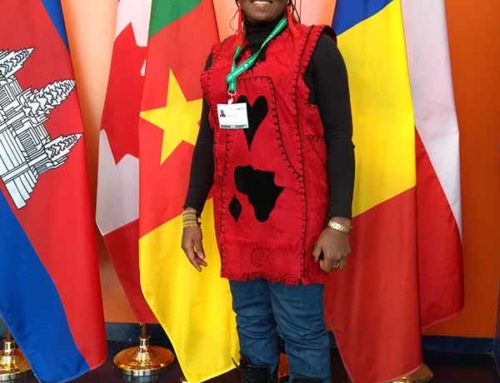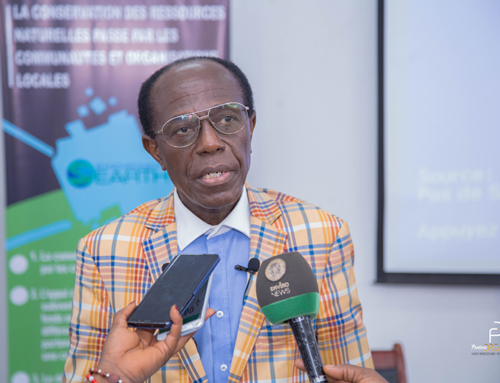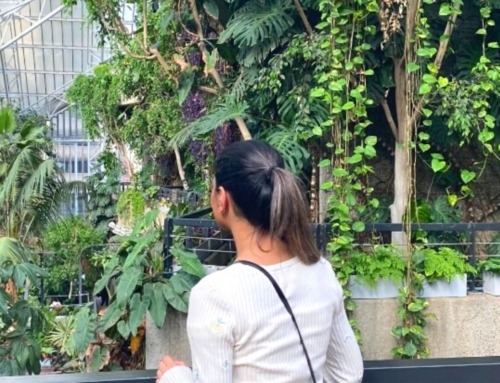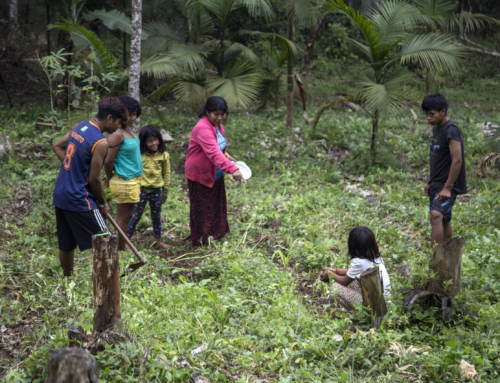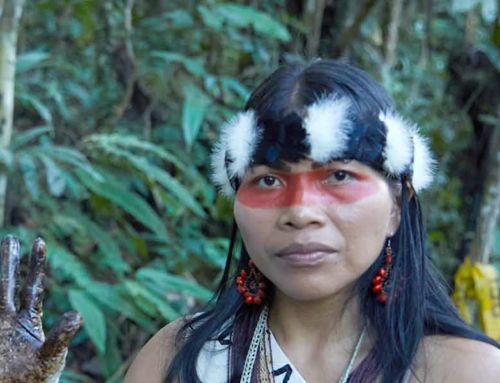We were delighted to host two extraordinary conservationists, Razan Khalifa Al Mubarak and Steven Broad, for Synchronicity Earth’s first virtual Deeper Thinking event on July 29. Hosted by our founders, Adam and Jessica Sweidan, the event explored the interconnections between human health and the environment and potential solutions to take us towards a more balanced and harmonious relationship with the natural world.
Razan is the Managing Director of the Mohamed Bin Zayed Species Conservation Fund and Managing Director of the Environment Agency – Abu Dhabi, currently running for presidency of the International Union for Conservation of Nature (IUCN). Steven is Executive Director of TRAFFIC, a leading non-governmental organisation working globally on trade in wild animals and plants in the context of both biodiversity conservation and sustainable development.
Listen to the first in our Deeper Thinking 2020 webinar series ‘Joining the Dots: Nature, People and Health’
Our relationship with nature
A relationship based on rights perishes, a relationship based on duties flourishes.
Swami Parthasarathy, philosopher
The ‘old normal’ disconnect between daily life and wildlife is one of the key problems which makes it hard for us to understand how the natural world affects us. But in some ways, the COVID-19 pandemic has brought many of us closer to nature. Even in urban environments, many workers who are no longer commuting are noticing local wildlife in a way they have not been able to experience before. Since we are now having a shared human experience, despite the many differences between the way people are affected by the pandemic across countries, backgrounds and circumstances, each of us now has a story about how humanity’s relationship with nature has affected our day-to-day lives.
What we need to do now is to use these experiences to help humanity understand the consequences of when this relationship is not respected, and use that understanding to drive forward change, so humans and nature can recover.
“If we continue to pillage the Earth and the planet because of our perceived right, then we will soon perish but if we change that understanding to a duty and responsibility of care we can change the narrative,” said Razan.
But how can we link our shared experiences of the COVID-19 crisis to the urgent actions we need to take to restore our relationship with nature to one of duty and responsibility? With stories.
Changing the narrative
After nourishment, shelter and companionship, stories are the thing we need most in the world.
Philip Pullman, author

COVID-19 has affected us all, but in many different ways. We shared some of the stories from our partners around the globe in Same diseases, different challenges. Image: Chris Scarffe
“Disease specialists keep telling us at TRAFFIC that these diseases have come and gone before, like SARS, and people said at that point ‘things will change’. But a year and a half later, the world hadn’t changed. So we need to find a way to link these personal experiences with the big picture, and that’s the role of stories,” said Steven.
“This is not an over there problem, it’s here wherever you are. While we’re all in the same ocean experiencing this pandemic, we are in very different boats. This is an opportunity to remind our species that we are part of nature, and not at all above it,” said Razan.
The need to widen the conversations about conservation to a bigger audience than those already concerned about the biodiversity crisis was a recurring theme throughout the debate. Not just to raise awareness so there are more voices speaking out for wildlife, but also because the conservation movement can learn so much from other disciplines.
Learning from others
If speaking is silver, then listening is gold.
Arabic proverb
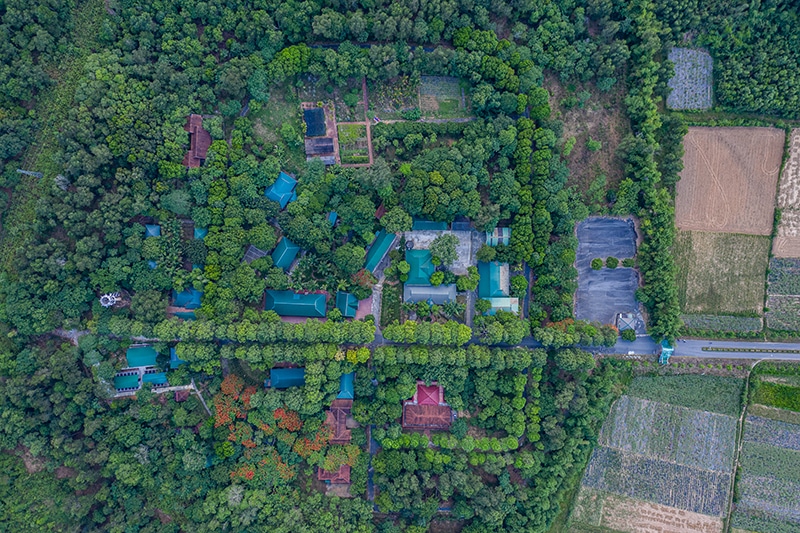
To live sustainably within the natural world, we need solutions that acknowledge how interconnected our lives are with wildlife. Image: Chris Scarffe
“As a conservation community, we need to listen and engage with communities that are not necessarily interested in nature conservation, not just speak to the converted.
How do we create alliances that do not come easily to us? We’re moving into a world that will be far more economically constrained, which will force us to collaborate further or to compete even more heavily than we do today. The more constructive direction would be to work together,” said Razan.
“Climate change and loss of species are symptoms of our inability to live sustainably within this natural system. We need joined up solutions. For us conservationists, 2020 was meant to be the ‘Super year for Biodiversity’ but for climate change activists it was going to be the ‘Super year for Climate Change’, as if we exist in different worlds. We need much more joined up thinking: biodiversity and climate are just two of those, there’s the UN SDGs and so on and we need to look for these joined up approaches,” said Steve.
“We need policy coherence – integration of thinking – and frankly this comes from leadership a lot of the time,” he added.
“Similarly to what the Intergovernmental Panel on Climate Change (IPCC) did for climate change, we need the same for nature and biodiversity. And fortunately we have that with Intergovernmental Science-Policy Platform on Biodiversity and Ecosystem Services (IPBES) and IUCN, who are trying to do that, but they need more support. To give them more support, leadership is critical, they need to be where they need to be, in international forums advocating for the protection of nature. But globally, we need to put our money where our mouth is. Biodiversity cannot remain the poor sister of the climate change community. We need to invest in a nature recovery plan,” said Razan.
Investing in nature
An ounce of prevention is worth a pound of cure.
Benjamin Franklin

Deforestation in Madagascar. Image: iStock
“The US government issued more debt in June than in the first 200 years of the country’s history. We currently have trillions of dollars being created to deal with the fallout from this one zoonotic disease, which you could argue could have been a lot worse, and if we look forward to what’s coming with climate change, it is enough to make us extremely nervous for what may be coming our way,” said Adam, co-founder of Synchronicity Earth and Chief Investment Officer of Aurum Research Ltd.
“This has given us a narrative we can understand – look at what just one element of nature can do. It’s done things that nobody would have imagined – global economic shutdown and lockdown. The cost of investing to try to stop this happening in future makes a lot more sense now,” Adam continued.
According to a paper recently published in Science journal ‘Ecology and Economics for Pandemic Prevention’, for the last century, each year has seen the emergence of two new viruses spilling over from their natural hosts to humans, and the risks are higher than ever as increasingly the barriers between humans and wildlife are removed by deforestation, the wildlife trade and more.
“The Science paper talks about the clear linkage between deforestation and virus emergence, coming to the logical conclusion that if we invest in protecting forest, we’ll have a good return on our investment. Then the question is, how much? If you are investing an annual amount of ten billion dollars, then you are able to reduce deforestation by 40%. Then think about that return of investment for pandemic prevention… it’s a no-brainer,” said Razan.
Steven spoke about reaching out to medical researchers specialising in infectious disease:
“The level of funding they are used to in medical research compared to the [vastly less] funding we are used to in the conservation sector, they just found it quite entertaining really. And their funding is mainly research funding, it’s not solutions-driven. We need to find integrated approaches, and bring together the interests and resource strings focussed on health approaches to look at how we can tackle zoonotic disease spread from the conservation side.”
Outrage and optimism
We cannot build something that we cannot imagine.
Helen Meredith, conservationist
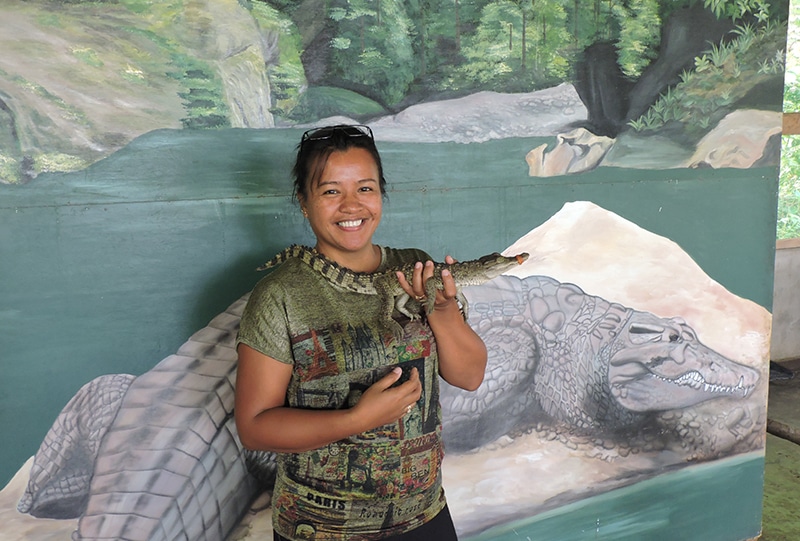
We believe that optimism is an essential part of being a conservationist, and so long as there are people and organisations doing incredible work (like Tess Gatan Balbas from the Mabuwaya Foundation), then we will be optimistic. Image: Anna Heath/SE
Although these shifts in priorities need to happen on a global stage, supported by intergovernmental organisations and championed by leaders across politics, industry, and many other sectors, both Steven and Razan spoke about the importance of bottom-up approaches, and the actions of the individual.
“It starts with us as individuals, what we choose to do, our own behaviour, what we consume, what we choose to participate in, what we give back, and how we act as agents of change for the behaviour of others. That’s not just thinking ‘what I do is never going to make a difference, and even if I talk to my neighbours about it, it’s not going to make a difference’ because it does. That’s how behaviour change starts, people listen to each other, and they listen a lot more to their peers than to people who are preaching to them. I think there’s a lot we can do in terms of solutions, but we need to be in it together,” said Steven.
“I’ve been listening to this incredible podcast called Outrage and Optimism. I think the title sums up why I am optimistic – there are so many outrageous numbers out there and this perception that nature is a right for all of us, and now we’re all facing the consequences of abusing our relationship with nature. But I think there is enough outrage to turn the tide, and that gives me optimism,” said Razan.
We would like to thank everyone who participated in our first virtual Deeper Thinking event, and particularly to our speakers for sharing their experiences and wisdom with us. Our next session will be Wednesday August 12th 5.30pm to 7pm with a different format for a wider discussion on how the pandemic could create the impetus for genuine, lasting systemic change, with speakers from the arts, business, conservation, finance, philosophy and youth leadership.
We very much hope you will join us. To register, please email us supporters@synchronicityearth.org and sign up to our newsletter for further updates on our Deeper Thinking series.

